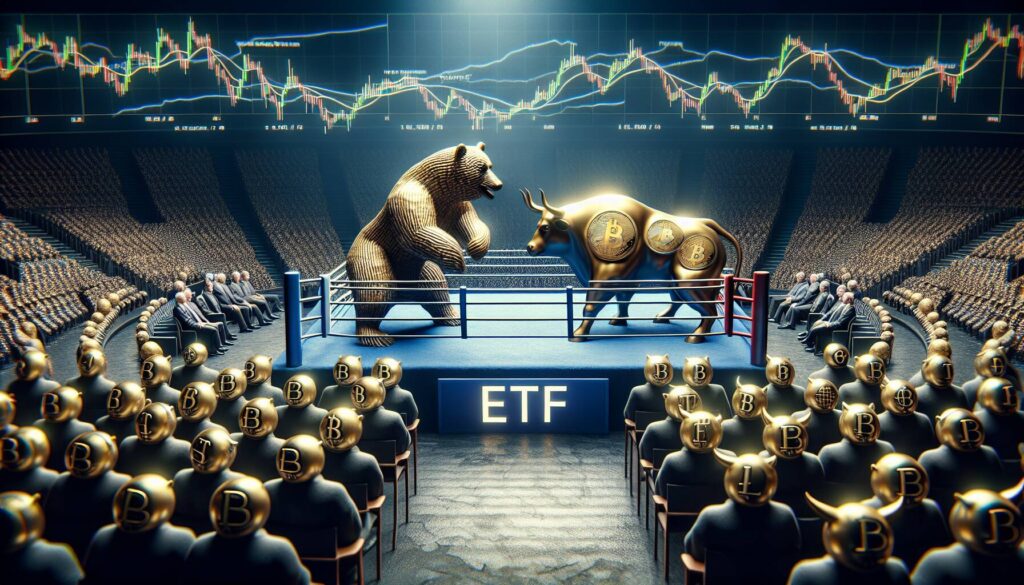DTTM Operations, the company overseeing U.S. President Donald Trump’s intellectual property rights, has recently made headlines by filing a trademark application with the U.S. Patent and Trademark Office (USPTO). This filing may signal an intriguing shift toward the potential creation of non-fungible tokens (NFTs) and a metaverse platform, tapping into the ever-evolving world of blockchain technology.
The trademark application outlines a variety of blockchain-based services, emphasizing activities like accessing NFTs, facilitating cryptocurrency transactions, and developing virtual reality software and gaming experiences that incorporate cryptocurrency tokens within online virtual environments. Currently, the application has been accepted by the USPTO and is set to undergo review by an examiner.
“Computer services, namely, creating an on-line virtual environment for exchange of digital collectibles featuring images, sound, videos and texts of Donald J Trump,” the filing states.
The metaverse, a term that surged in popularity during the 2021 cryptocurrency boom, refers to a digital realm where individuals can engage and interact beyond physical limitations. Despite its fading allure with big brands and celebrities pulling back from their early commitments, the concept remains a focal point of interest in the tech world. Trump’s potential involvement could reignite interest in this space, particularly for tokens like Sandbox (SAND) and Decentraland (MANA), which have seen diminished demand since the initial hype subsided.
While the specifics of what this new platform will entail remain unclear, the anticipation surrounding Trump’s filing raises questions about the future trajectory of blockchain technology and the role individuals can play in virtual economies. The dialogue concerning these developments continues, as the cryptocurrency space watches closely to see if this trademark will translate into a transformative product or experience.

Exploration of Trump’s New Trademark Filing for Potential NFT and Metaverse Initiatives
The recent trademark filing by DTTM Operations suggests new ventures into NFTs and the metaverse associated with Donald Trump’s IP rights. Here are the key takeaways:
- Trademark Filing Details:
- Accepted by the U.S. Patent and Trademark Office (USPTO)
- Covers blockchain-based goods like NFTs, virtual reality software, and cryptocurrency transactions
- Potential Impact of the Metaverse:
- Represents a virtual reality world for social interaction beyond physical barriers
- Has seen mixed reactions from brands and celebrities since its hype in 2021
- Trump’s Crypto-Friendly Policies:
- Launch of TRUMP memecoin and promotion of bitcoin as a potential U.S. reserve currency
- Creation and selling of Trump-themed NFTs, offering various unique rewards
- Market Implications:
- Possible revitalization of metaverse tokens such as Sandbox (SAND) and Decentraland (MANA)
- Success contingent upon the execution of the platform and product launches
“While filing a trademark doesn’t guarantee a product launch, it indicates a significant interest in merging conventional branding with emerging digital trends.”
Trump’s Trademark Filing: A Game Changer for the Metaverse?
The recent trademark application filed by DTTM Operations, which manages former President Donald Trump’s intellectual property rights, has sparked considerable interest and speculation in the blockchain and metaverse communities. Unlike other high-profile entries into the metaverse—think meta-giants like Meta Platforms (formerly Facebook) or gaming powerhouses such as Epic Games—Trump’s foray does come with unique advantages and drawbacks.
Competitive Advantages: The most notable advantage of this filing is the immediate recognition that Trump’s name brings, which could attract a dedicated following of both fans and collectors. His previous NFT releases proved that there’s a market eager for Trump-related digital collectibles, providing a promising foundation for the growth of this new platform. Moreover, coming from a prior administration that made crypto-friendly moves, this endeavor presents an opportunity to reignite interest in cryptocurrencies and metaverse applications, which have seen a decline in enthusiasm since their previous peaks.
Additionally, if the platform successfully incorporates blockchain technology and offers exclusive access to experiences—like dinners or merchandise—it could set a unique precedent in the NFT marketplace by spatially blending collectibles with real-life perks. This blend could not only fortify user engagement but also establish a new model for how digital assets can be monetized.
Competitive Disadvantages: However, the undertaking also has potential drawbacks. The metaverse concept, once the darling of tech and entertainment realms, has recently waned in popularity, with many major brands hesitating to dive back in after the initial hype fizzled out. Trump’s entanglement with controversial political narratives could also dissuade potential consumers who may be put off by the divisiveness surrounding his brand. There’s a risk that some may see the initiative as a gimmick rather than a genuine innovation in the digital space.
This development could markedly benefit crypto enthusiasts and Trump supporters, who may be keen to engage with a platform that celebrates his legacy through digital collectibles. However, for mainstream brands and users hesitant about entering the metaverse—especially after disappointing past investments—the potential failure to launch compelling products could reinforce skepticism and doubt, resulting in further erosion of interest in metaverse-related investments.















